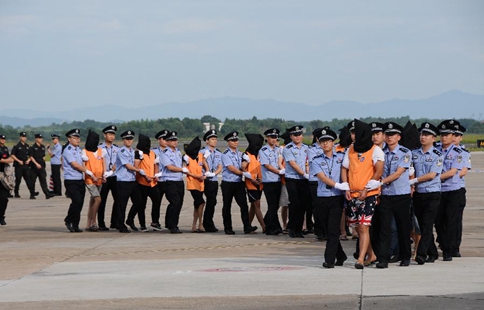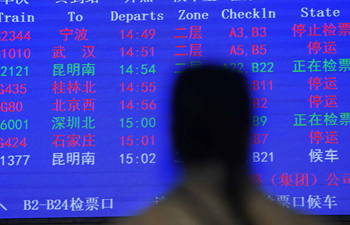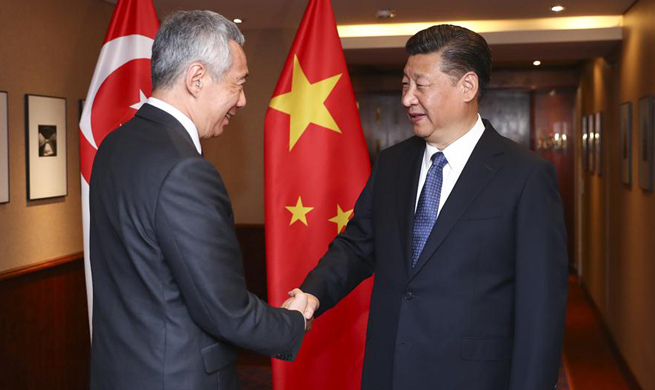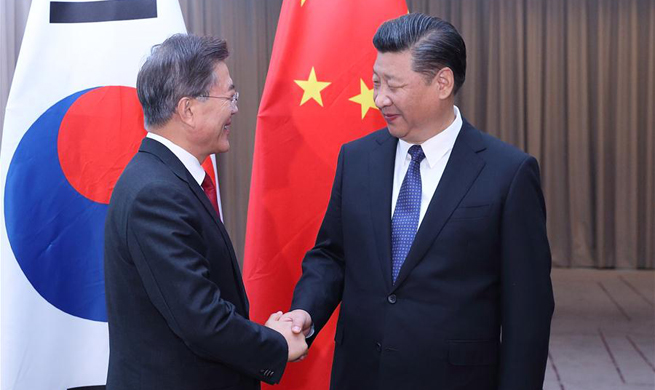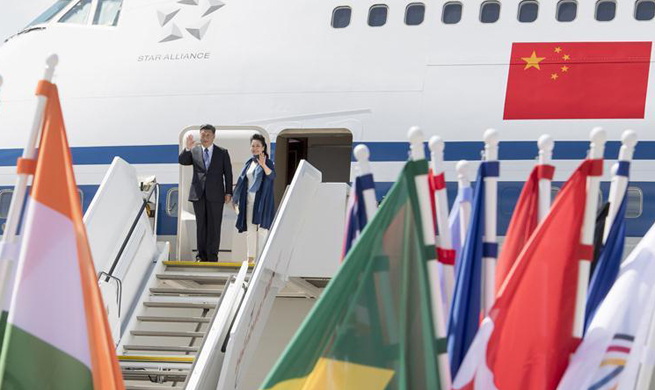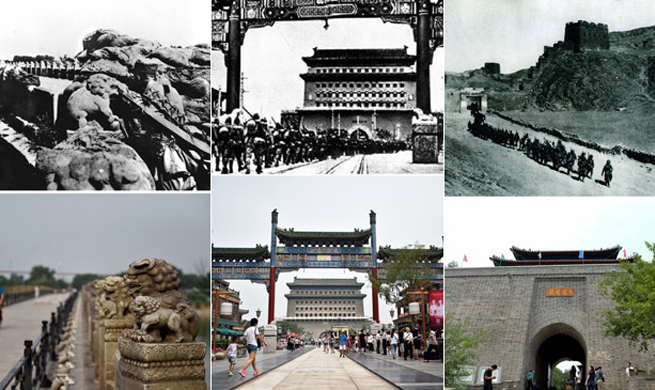LONDON, July 6 (Xinhua) -- The British judge who conducted a marathon inquiry into London's involvement in the invasion of Iraq said Thursday former Prime Minister Tony Blair should not have given his infamous "I shall be with you whatever" commitment to then U.S. President George W. Bush.
Sir John Chilcot was giving his first interview to mark the first anniversary of the publication of his report on the 2003 Iraq war.
British and U.S. forces invaded Iraq. The war, over the following six years, led to the overthrow of then Iraqi President Saddam Hussein, the death of 150,000 Iraqis and the displacement of over 1 million people.
In the interview with the British Broadcasting Corporation (BBC), Chilcot agreed that his report in theory could stop a similar rush to war when not enough was being done to ensure it was the right thing.
"I've got good reason to have real confidence in both the Ministry of Defense institution and in the armed services, to think that they would not allow that to happen without much more rigorous analysis," said Chilcot.
Asked if Britain could ever go to war in the same way, Chilcot said:" Oh yes. In an existential crisis, certainly. No question about it. And I don't think we would need a war powers act to prevent us to do that."
"I think we have seen evidence of, not of a failure of nerve, but of an insistence on much better control of capacity, resources before reaching a decision to do something on that scale," he said.
Blair's close link to Bush became a key focus during the inquiry, particularly his remark "I shall be with you whatever."
Chilcot said when he saw that remark he thought "You mustn't say that," adding:" Because you're giving away far too much. You're making a binding commitment by one sovereign government to another which you can't fulfill. You're not in a position to fulfill it. He didn't even know the legal position at that point."
Chilcot also said both leading politicians and the government have the responsibility to make the case for the policy decision taken but also to balance that with realism about risks, downsides and counter-arguments.
"If you act simply as a one-sided advocate you risk losing that. And I think that risk did come about," said Chilcot.
Chilcot agreed that because of the lack of preparation Iraq war was not at that stage a necessary war.
Asked if that meant the British government put British servicemen and women and Iraqi civilians in harm's way unnecessarily, Chilcot said:" In harm's way, certainly. You can't run an exercise like Iraq without civilians being unavoidably profoundly affected. I think it was not necessary for us to join in that at the time we did."
Chilcot also said he thinks that "the fundamental British strategy was fractured," with the cabinet for a formal policy of containment, while Blair running a coercive diplomacy with the support of the foreign secretary, who hoped that diplomacy would win instead of coercion.
Chilot believed that Britain's involvement in Iraq has made the Middle East less stable and more dangerous by breaking a balance of power
"The security failure in Iraq - both Iraq as a whole and in the southeast where we took responsibility, can only have disrupted not only Iraq itself but the whole balance of power - Iran, Iraq, the Gulf States, the rest, and indirectly Syria," he said.
"Libya is a possible exception up till much later," Chilot added.





